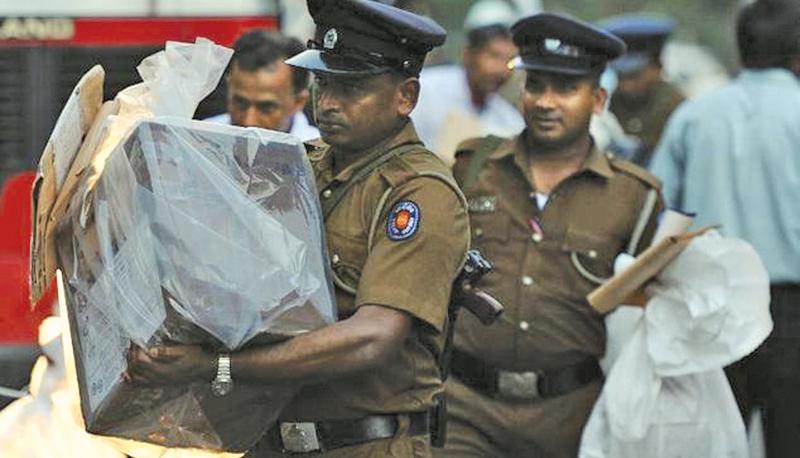
It is anticipated that the elections to appoint members to the nine Provincial Councils, will be held by March next year following last Friday’s political shift.
This has been communicated to the Independent Elections Commission by President Maithripala Sirisena last week. In his own words - ‘under whichever system the elections must be held within three months.’
It was speculated that the President met the Election Commission Chairman Mahinda Deshapriya at his official residence on Tuesday. An Election Commission top official did not confirm this but said, a communique was issued to the President in response to his inquiry as to what measures could be taken to expedite the Provincial Council Elections, and stating that they will be held within three months.
According to the communique the Commission has proposed two ways to resolve the current impasse created by the non-passing of the Delimitation Committee report in Parliament within the time frame dictated by the new Provincial Council Elections Act of 2017.
 For three provincial councils - Sabaragamuwa, Eastern and North Central - the PC elections should have been held over one year ago.
For three provincial councils - Sabaragamuwa, Eastern and North Central - the PC elections should have been held over one year ago.
After the new PC elections Act was passed in Parliament, proposing a new mixed system of election combining the ‘First Past the Post’ and Proportional Representation, the first requirement was to demarcate new wards for the electorates. Anticipating deliberate delays, the passing of the delimitation report in the House, included a mandatory time frame.
When the report got defeated in the House, the next step was to appoint a five member review committee by the Speaker. Former Prime Minister Ranil Wickremesinghe was the ex-officio chairman and the committee’s mandate was to review the boundaries of the new wards, demarcated by the Thavalingam delimitation committee. It had to wrap up the task within two months.
Five minority political parties including Rishad Bathiudeen’s All Ceylon Makkal Congress, SLMC, the EPDP and Mano Ganeshan’s Democratic People’s Party, all opposed the new delimitation on several grounds including the fact that the displaced Muslims’ issue, and certain other minority issues were not addressed by the committee. One of their demands, not addressed by the committee, was the creation of smaller electorates to ensure minority representation.
Authoritative sources said the review committee has held just two sittings within the two month period that ended on October 28. They had met on September 7 and 20 but no final report was produced. Now without a review report, the Election Commission has suggested, the available way out is to get the Thavalingam report passed in Parliament. In addition, amendments rectifying technical and policy issues in the Provincial Council Act are to be passed in Parliament to clear the path for elections. “The process will consume at least one and a half months.” A senior official at the Commission said, it will need nearly 80 days thereafter to make preparations for elections under the new system which means that if they begin the process now, the elections can be scheduled by early March.
The second path proposed by the Election Commission is to postpone the date the new Act comes into force, and hold the election under the old system. “That process will also need about one and a half months to complete the ‘the Cabinet, Attorney General’s Department, Legal Draftsman and the Parliament round’ but the election preparation period will be relatively less, because the old system is familiar to us (election) officers,” the sources said, adding that it will require only about 60 – 65 days to hold the election under the old system.
Sri Lanka Podujana Peramuna (SLPP) has conveyed its consent to hold election under any system, while the UNP wanted it under the old system and the SLFP under the new system. But President Sirisena last week informed the Independent Election Commission that he was willing to hold polls within three months under whatever system.
Despite the latest developments after the swearing in of former President Mahinda Rajapaksa as the new Prime Minister, (that saw Joint Opposition and SLPP coming together with SLFP), it has not been made clear if the SLPP and the Joint Opposition will contest with the SLFP at the upcoming PC election.
The UNP too is yet to announce its stance as well as the SLMC and the other minority parties who are still in the UNP fold.
Welcoming the news, independent polls observers said that despite the developments on the political front, it was indeed good news if action is taken to hold the elections without further delay, so as to appoint people’s representatives to the six Councils that stand dissolved since October this year.
The Election Commission last week said that at the end of three weeks from October 29, they will seek the Supreme Court’s intervention to hold the PC elections, if no action is taken within Parliament to clear existing legal barriers.
The Supreme Court under SCFR 35/2016 has ruled that allowing the PC’s to be run by Secretaries and officials was a breach of the people’s fundamental rights, by the State.
